
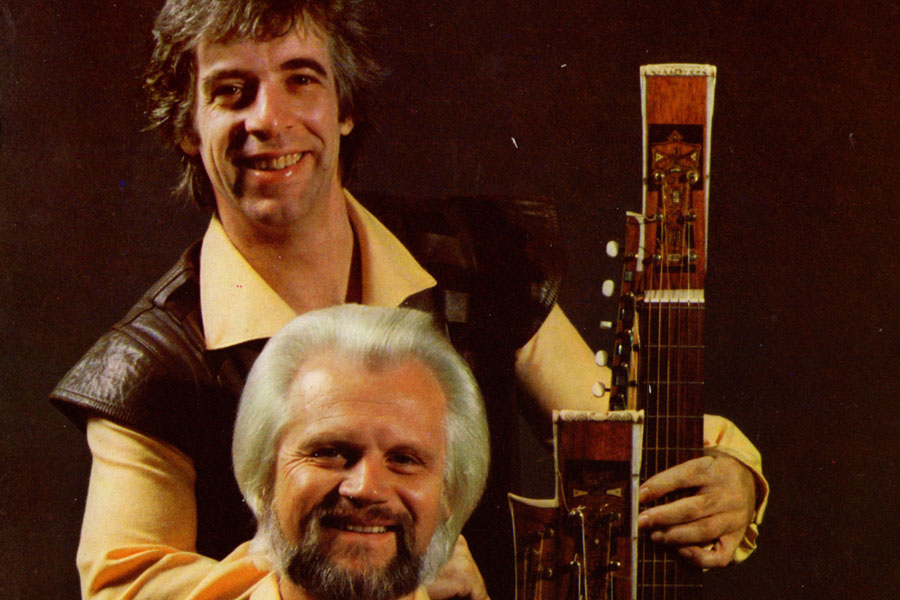
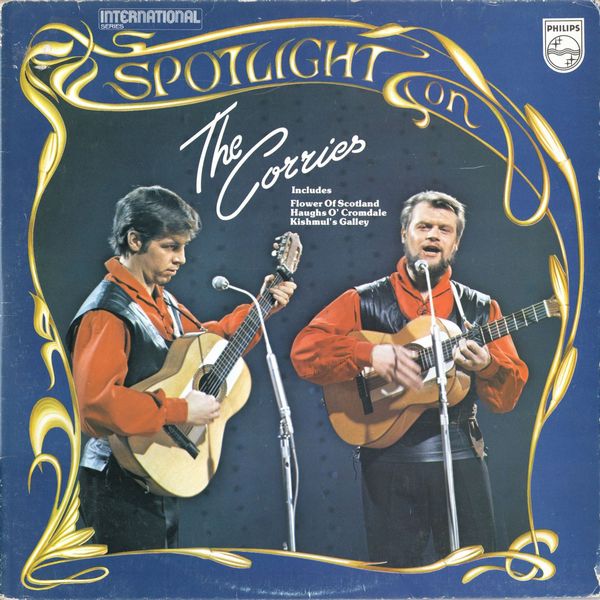 |
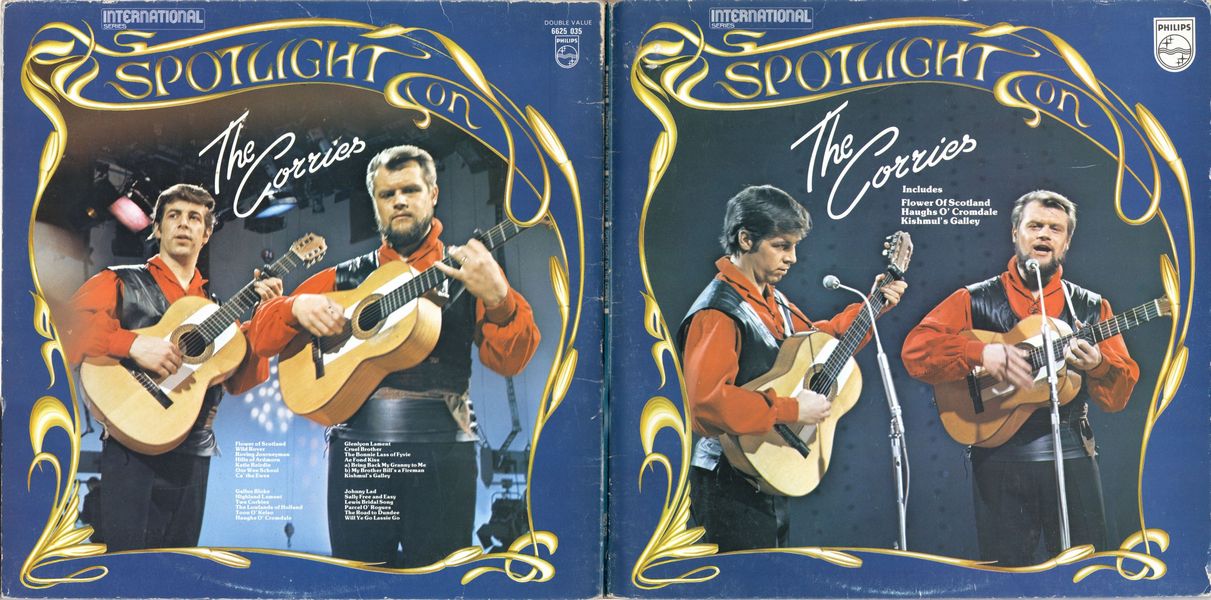
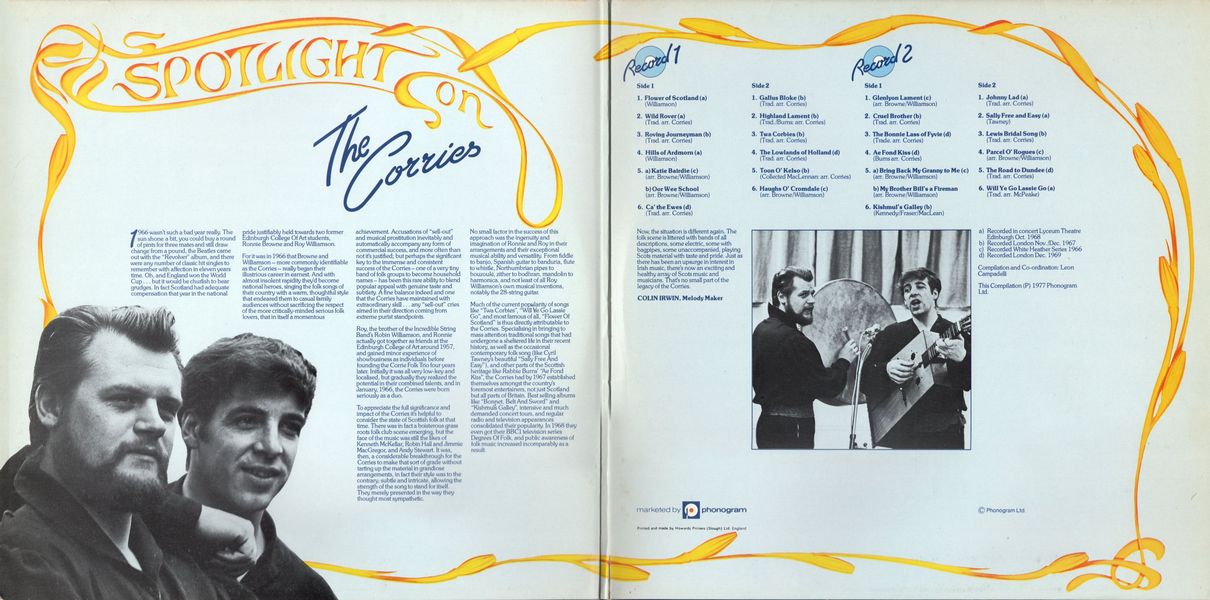
|
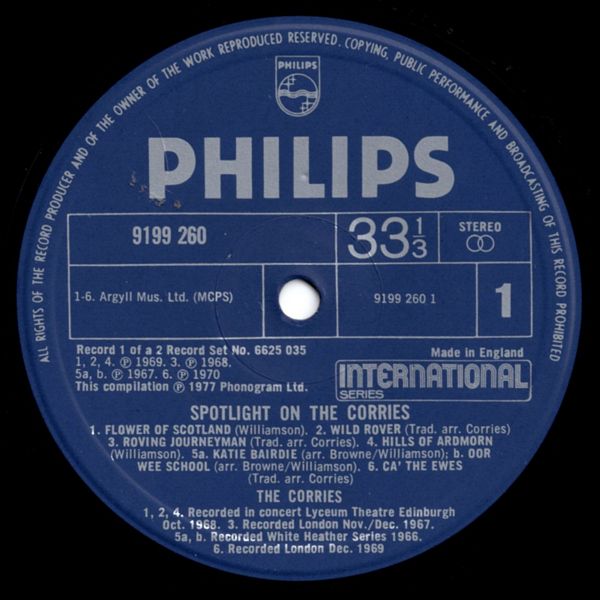
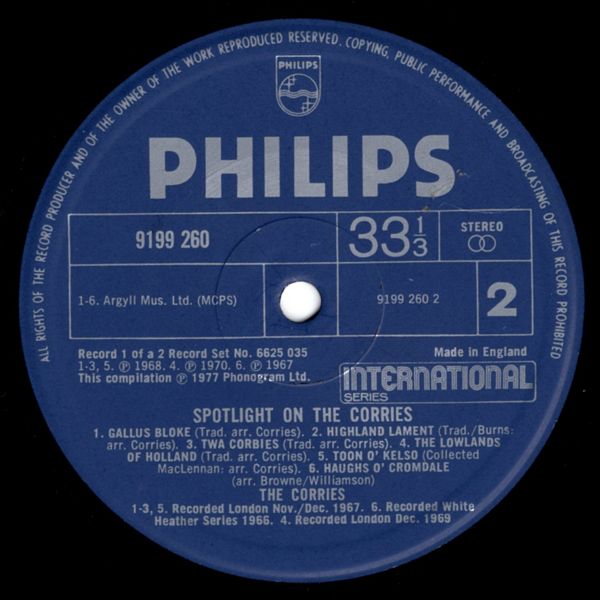
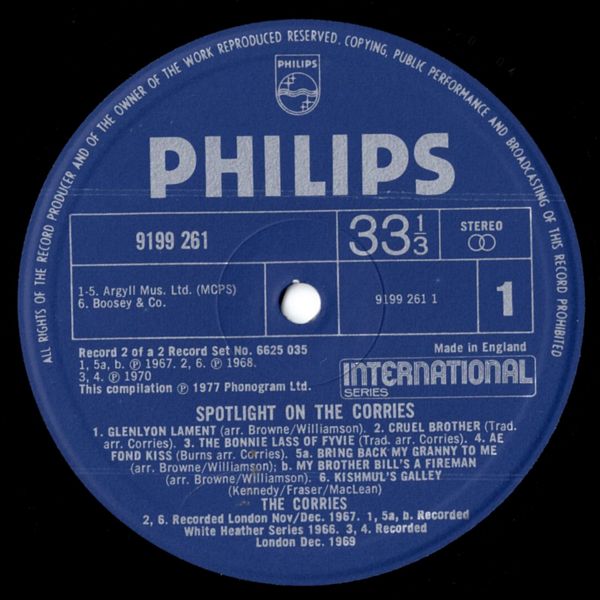
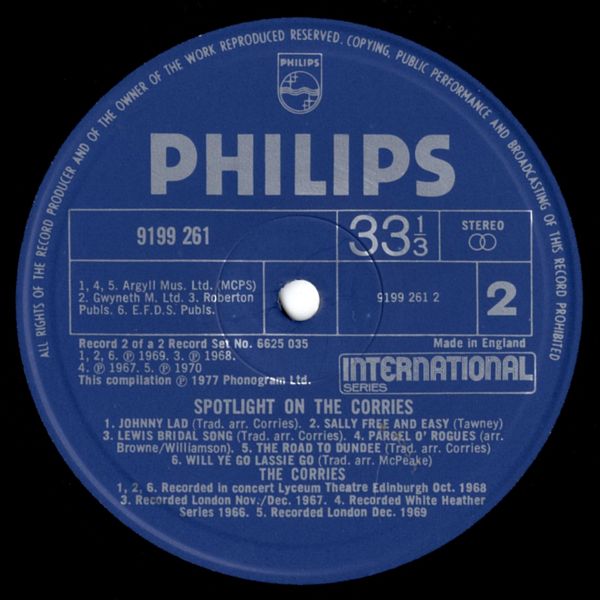
|
Sleeve Notes
1966 wasn't such a bad year really. The sun shone a bit, you could buy a round of pints for three mates and still draw change from a pound, the Beatles came out with the "Revolver" album, and there were any number of classic hit singles to remember with affection in eleven years time. Oh, and England won the World Cup … but it would be churlish to bear grudges. In fact Scotland had adequate compensation that year in the national pride justifiably held towards two former Edinburgh College Of Art students, Ronnie Browne and Roy Williamson.
For it was in 1966 that Browne and Williamson — more commonly identifiable as the Corries — really began their illustrious career in earnest. And with almost insolent rapidity they'd become national heroes, singing the folk songs of their country with a warm, thoughtful style that endeared them to casual family audiences without sacrificing the respect of the more critically-minded serious folk lovers, that in itself a momentous achievement. Accusations of "sell-out" and musical prostitution inevitably and automatically accompany any form of commercial success, and more often than not it's justified; but perhaps the significant key to the immense and consistent success of the Corries — one of a very tiny band of folk groups to become household names — has been this rare ability to blend popular appeal with genuine taste and subtlety. A tine balance indeed and one that the Corries have maintained with extraordinary skill … any "sell-out" cries aimed in their direction coming from extreme purist standpoints.
Roy, the brother of the Incredible String Band's Robin Williamson*, and Ronnie actually got together as friends at the Edinburgh College of Art around 1957, and gained minor experience of showbusiness as individuals before founding the Corrie Folk Trio four years later. Initially it was all very low-key and localised, but gradually they realized the potential in their combined talents, and in January, 1966, the Corries were born seriously as a duo.
To appreciate the full significance and impact of the Corries it's helpful to consider the state of Scottish folk at that time. There was in fact a boisterous grass roots folk club scene emerging, but the face of the music was still the likes of Kenneth McKellar, Robin Hall and Jimmie MacGregor, and Andy Stewart. It was, then, a considerable breakthrough for the Corries to make that sort of grade without tarting up the material in grandiose arrangements, in fact their style was to the contrary, subtle and intricate, allowing the strength of the song to stand for itself. They merely presented in the way they thought most sympathetic.
No small factor in the success of this approach was the ingenuity and imagination of Ronnie and Roy in their arrangements and their exceptional musical ability and versatility. From fiddle to banjo, Spanish guitar to banduria, flute to whistle, Northumbrian pipes to bouzouki, zither to bodhran, mandolin to harmonica, and not least of all Roy Williamson's own musical inventions, notably the 28-string guitar.
Much of the current popularity of songs like "Twa Corbies", "Will Ye Go Lassie Go", and most famous of all. "Flower Of Scotland" is thus directly attributable to the Corries. Specialising in bringing to mass attention traditional songs that had undergone a sheltered life in their recent history, as well as the occasional contemporary folk song (like Cyril Tawney's beautiful "Sally Free And Easy"), and other parts of the Scottish heritage like Rabbie Burns' "Ae Fond Kiss", the Corries had by 1967 established themselves amongst the country's foremost entertainers, not just Scotland but all parts of Britain. Best selling albums like "Bonnet, Belt And Sword" and "Kishmuls Galley", intensive and much demanded concert tours, and regular radio and television appearances consolidated their popularity. In 1968 they even got their BBCl television series Degrees Of Folk, and public awareness of folk music increased incomparably as a result.
Now, the situation is different again. The folk scene is littered with bands of all descriptions, some electric, some with bagpipes, some unaccompanied, playing Scots material with taste and pride. Just as there has been an upsurge in interest in Irish music, there's now an exciting and healthy array of Scots music and musicians. That's no small part of the legacy of the Corries.
COLIN IRWIN, Melody Maker
* Contrary to what is stated in this article, Robin Willianson, of of the Incredible String Band, and Roy Willianson were not releated, let alone brothers.